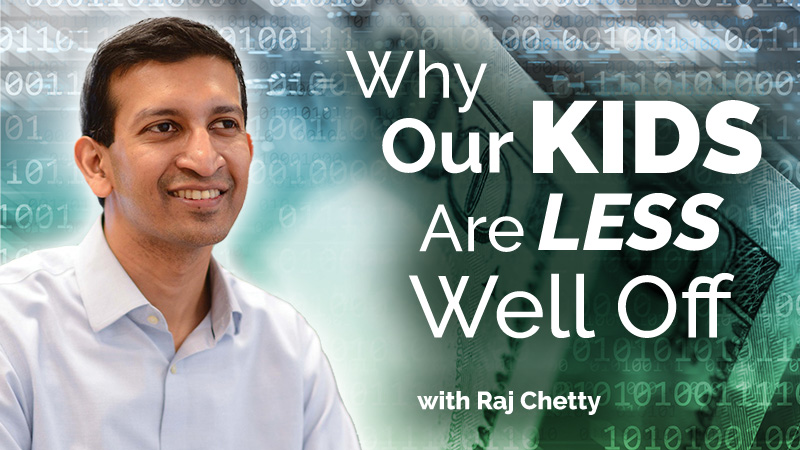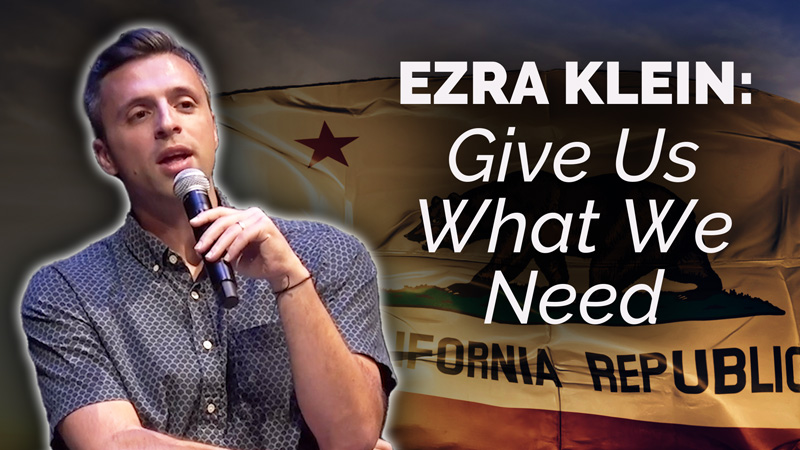-
Finding a Place to Call Home in California
Despite an investment of over $20 billion in recent years to combat homelessness, California still faces a critical challenge with alarmingly high numbers of people living on the streets and in their vehicles. Jessica Castillo-Tapia, a graduating senior at UC Santa Barbara, understands the harsh realities of housing insecurity from her own life experiences. Raised […]
-
Restoring the American Dream: Insights from Big Data

The promise of the American Dream, once almost a certainty for the vast majority of children in the United States, has significantly diminished. Raj Chetty, a renowned professor at Harvard University and director of Opportunity Insights, delves into this issue with his talk, “The Science of Economic Opportunity: New Insights from Big Data.” Utilizing extensive […]
-
The Paradox of Progressive Governance: Ezra Klein on California’s Challenges

In a thought-provoking discussion with Amy E. Lerman, Chair and Professor of Public Policy and Political Science at UC Berkeley, Ezra Klein, a renowned opinion columnist and podcast host for The New York Times, delved deep into the heart of California’s most pressing issues. The state, known for its progressive policies, is paradoxically grappling with […]
-
How Modern Slavery Impacts the Environment

There are 45 million enslaved people in the world today. The links between slavery, conflict, environmental destruction, economics and consumption began to strengthen and evolve in the 20th century. The availability of people who might be enslaved dramatically increased in line with population growth – and often, slaves are forced to do work that is […]
-
China Expert Kevin Rudd Examines the Future of U.S.-China Relations

China is a complex country, and so is the U.S. relationship with it. For Kevin Rudd, a China expert and former Australian prime minister, his vantage point allows him to step back and see that relationship from a different perspective. Rudd’s insights into President Xi Jinping’s ideological worldview have drawn the attention of governments across […]
-
Smart Money: Education Investments in Adolescents Earn Higher Returns

Caroline Hoxby, professor of economics at Stanford University and one of the world’s leading scholars in the field of education economics, says investing in education in early adolescents can have profound impacts on the continuation of learning through teenage years and beyond. More education leads to social cohesion, advancing economic opportunity, reducing inequality and decreasing […]
-
Is it Time to Rethink the Idea of the Amoral Economic Man?
There is a widely held belief that when designing public policy or legal systems, it makes the most sense to assume that all citizens are entirely self-interested and amoral. It’s a theory known as “homo economicus” or “economic man.” But, economist Samuel Bowles argues against that belief in his book The Moral Economy: Why Good […]